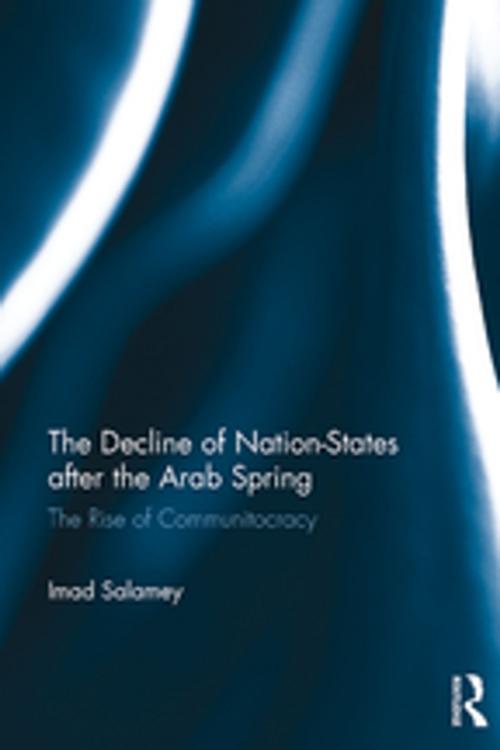The Decline of Nation-States after the Arab Spring
The Rise of Communitocracy
Nonfiction, Social & Cultural Studies, Political Science| Author: | Imad Salamey | ISBN: | 9781317036241 |
| Publisher: | Taylor and Francis | Publication: | October 14, 2016 |
| Imprint: | Routledge | Language: | English |
| Author: | Imad Salamey |
| ISBN: | 9781317036241 |
| Publisher: | Taylor and Francis |
| Publication: | October 14, 2016 |
| Imprint: | Routledge |
| Language: | English |
Surveying the causes of the Arab Spring, and revealing the governing trends arising from it, this book examines various international relation theories through the lens of the experiences of the countries in the Middle East and North Africa region. It takes the events of the Arab Spring as an outcome of globalization’s double movement whose integrative cultural, political and security frameworks devastated nationally controlled economies, undermining the nation-state system and propagating a decentralized and communitarian-based governance structure. The consequences for many plural, diverse societies were two-fold: autocratic nationalism was discarded while decentralized regimes representing communitarian-based politics came to the fore. The author reveals how the formulation of a new communitocratic order rests on the accommodation of this newly emerging communitarianism and explores the major drivers of political transformation, describing the emerging communities, forecasting their governing options and the possible repercussions for the post-Arab Spring states.
Surveying the causes of the Arab Spring, and revealing the governing trends arising from it, this book examines various international relation theories through the lens of the experiences of the countries in the Middle East and North Africa region. It takes the events of the Arab Spring as an outcome of globalization’s double movement whose integrative cultural, political and security frameworks devastated nationally controlled economies, undermining the nation-state system and propagating a decentralized and communitarian-based governance structure. The consequences for many plural, diverse societies were two-fold: autocratic nationalism was discarded while decentralized regimes representing communitarian-based politics came to the fore. The author reveals how the formulation of a new communitocratic order rests on the accommodation of this newly emerging communitarianism and explores the major drivers of political transformation, describing the emerging communities, forecasting their governing options and the possible repercussions for the post-Arab Spring states.















